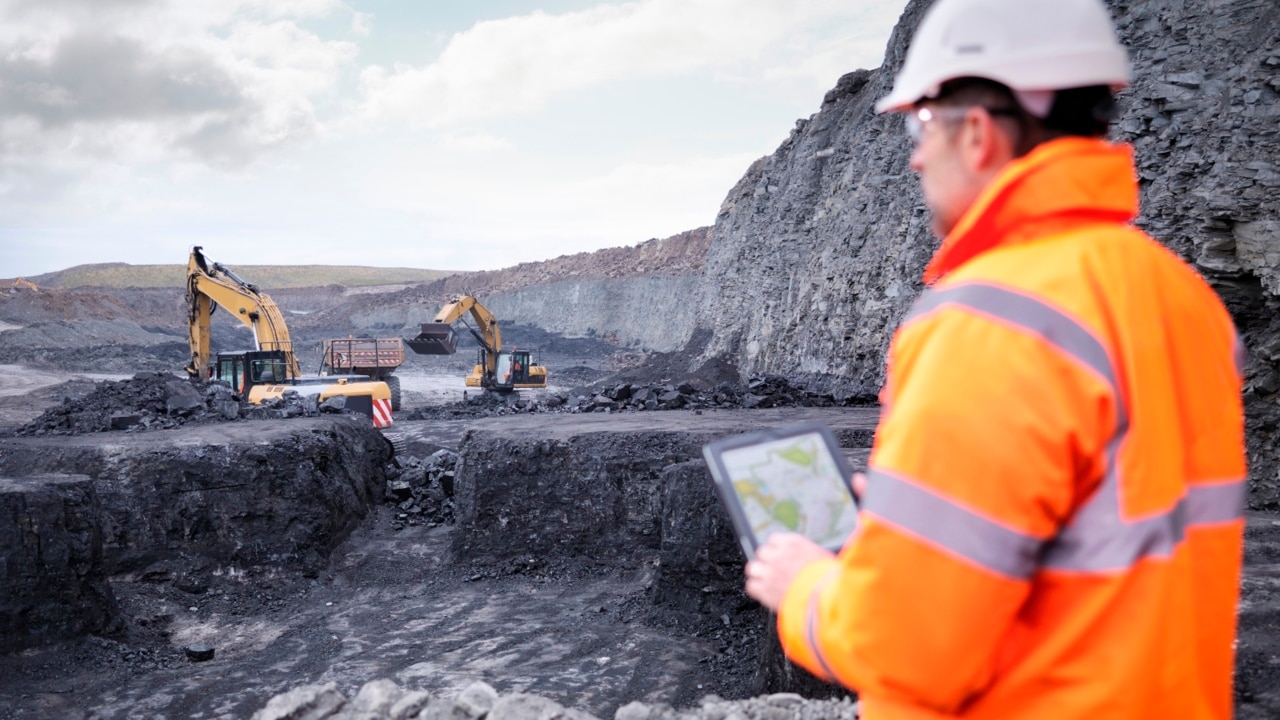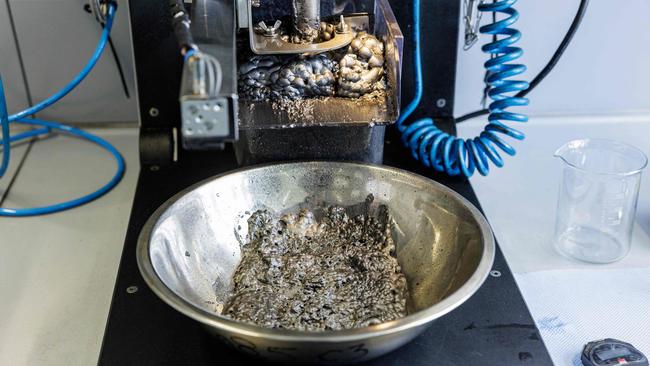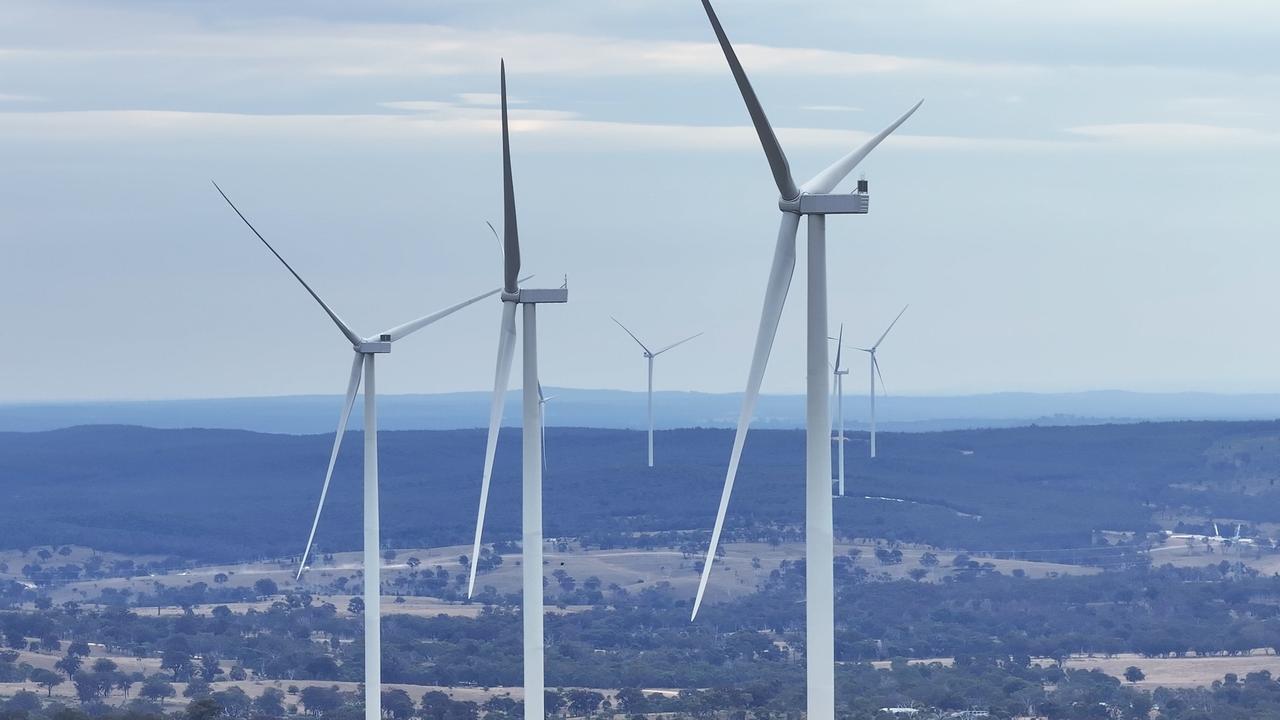Chris Ellison calls for onshore lithium battery chemical production
Mining billionaire Chris Ellison calls for the Albanese government to stand up and take control of lithium battery development before the nation is left behind.

Business
Don't miss out on the headlines from Business. Followed categories will be added to My News.
One of the nation’s biggest mining billionaires, Chris Ellison of Mineral Resources, has called on the Albanese government to develop a lithium battery industry as pressure grows on Australia to boost its sovereign manufacturing capability.
MinRes, a major producer of lithium and iron ore, has urged the federal government to help fund and develop a battery chemical manufacturing industry as part of its 2023-24 federal budget.
“With demand for battery chemicals set to grow by more than fivefold by 2030, we have a once in a generation opportunity to strengthen the value of our natural resources and create thousands of long-term jobs further down the battery chemical supply chain,” Mr Ellison said in a special submission handed to government alongside meetings in Canberra on Wednesday.
“Without the rapid and substantial acceleration of the development of a battery chemicals industry, there is no chance of Australia ever moving past the extraction and early refinement of battery minerals,” Mr Ellison said.
The mining billionaire’s comments come just a day after US-based Albemarle, the world’s biggest lithium producer by market capitalisation, had a $5.5bn bid for lithium hopeful Liontown Resources snubbed; and China-connected Austroid Corp’s ambitions to snap up $1.5bn in-production lithium miner Alita for as little as $250m hit a major litigation snag.
Federal Treasurer Jim Chalmers has conceded that Australia could be doing more than just extracting critical minerals such as lithium from the ground and shipping them offshore.
“Our great opportunity lies not just in extracting and then exporting the rare earths that we have and that the world needs but also in moving our way up and along the value chain through processing, refining, upgrading, manufacturing, reusing and recycling, powered by renewable energy,” Mr Chalmers said before the submission was tabled. “This is a generational opportunity that we cannot miss or mishandle.”

The Albanese government is yet to announce how it will navigate the delicate balance between improving its fragile relationships with Beijing, against Labor’s desire to keep the processing of Australia’s critical minerals onshore.
Australia Institute research director Rod Campbell said the government needs to learn from past mistakes and ensure all Australians can benefit from the critical resources boom.
“I’d like to see the mistakes of the earlier mining boom avoided,” said Mr Campbell. “We need to change our policy settings to make sure more value is added onshore and that more benefits are enjoyed by the Australian community, through public stakes (in critical miners) and royalty regimes that are adapted depending on whether or not value is being further added onshore.”
Mr Ellison, and other lithium miners who would only speak on background, believe it’s not too late to play the game differently with critical minerals.
MinRes is one of the world’s top five lithium producers through its Mt Marion joint venture with China’s Ganfeng Lithium, and Wodgina, which is a joint venture with Albemarle – the same company trying to buy Liontown.
As it stands, although Australia is the biggest lithium producer, it is China that controls some 80 per cent of the supply chain and is the world leader in electric batteries and vehicles.
The US and Europe are now playing catch up to try to diminish the head start and domination of the battery supply chain at the expense of the West by China.
In the US, the Biden government’s Inflation Reduction Act of 2022 is a measure designed to encourage investment with key Western partners.
Meanwhile, the European Battery Alliance has flagged issues with China’s control of the lithium battery supply chain and is targeting the EU being self-sufficient in batteries by 2030.
But Mr Ellison said that despite Australia’s massive natural resources, lithium battery development in Australia is not getting the support that other countries were giving to this critical supply chain product.
“While some downstream investments in battery chemical conversion have been made in Australia, each of these projects has been plagued by delays, technical challenges and significant capital cost blowouts,” Mr Ellison wrote in his submission. “The investments to date have barely scratched the surface of Australia’s battery chemical production potential.”
MinRes has experienced these problems first hand.
To build the Kemerton lithium hydroxide processing plant, which is a 15/85 per cent joint venture with Albermarle, it is now expected to cost $US1.5bn to build and commission the plant, whereas Mr Ellison has said that the same facility could be built in China for $US600m.
MinRes has also flagged building another lithium hydroxide plant but said it would cost north of $US800m and require government support.
“It is becoming increasingly difficult to convince international partners and investors of the economic value of building battery chemical facilities in Australia when so much is on offer elsewhere,” Mr Ellison said.
Mr Ellison has put forward a seven-step plan for the Australian government to move up the supply chain and away from its track record of just shipping minerals offshore.
His submission calls for significant direct grant assistance, accelerated tax write-offs for battery chemical projects, corporate tax and state government royalty relief for lithium being used for domestic purposes, Investment in enabling infrastructure and approvals facilitation, a new green energy approval process, fast-tracked government loans, and international partnerships such as free trade agreements for companies investing in Australian onshore battery chemical projects.
MinRes already owns a share in Albemarle’s lithium hydroxide plant in the South West of WA, and Mr Ellison has said the company wants to build its own lithium hydroxide plants in the next three to five years.
“Without doubt, in addition to the continued expansion of lithium primary production, the development of a battery chemicals industry in Australia is the best and only immediate option,” said Mr Ellison.
Lithium prices have been booming in the past few years as the world has caught up with the fact that the product is essential to any net-zero government policies.
Lithium concentrate had spiked above $US6000 per tonne but had fallen to $US5162 per tonne yesterday according to the Asia Metals spot price. That’s still dramatically above the $US450 pricing on spot in 2019, and shows that stronger demand for the product is not going away for as long as it remains a key ingredient in batteries.
It’s believed based on global net-zero policies that demand for lithium will exceed reserves – including those not yet extractable from the ground – by as much as 250 per cent by 2050.
Australia is the biggest supplier of lithium, followed by Chile (which has the biggest reserves), China, and Argentina.
More Coverage
Originally published as Chris Ellison calls for onshore lithium battery chemical production





